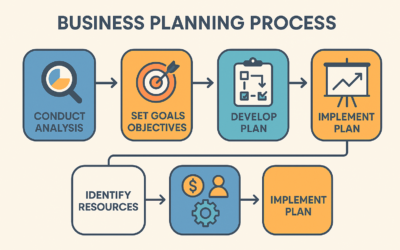Successful family businesses are the result of risk-taking, due diligence and a lot of hard work. So, it comes as no surprise that families that own their own business often want to see it pass on to the next generation. However, this can often prove to be surprisingly difficult. Under 12% of all families, businesses manage to survive into a third generation. This is a sobering statistic. So, why is succession planning so difficult when it comes to family businesses? More importantly, how can a family that owns and runs its own business make the best transition decision for them and, in turn, prepare the next generation to implement that decision?
The New Generation Are Unprepared or Disinterested in The Business
It can be very intimidating for the next generation to try to step into the business founder’s shoes. How will they replicate their family member’s success? It’s all-too-easy to feel inadequate and to lack self-confidence. As a result, this can have a seriously negative impact on risk tolerance, drive, passion, and resilience – all key characteristics to be a successful business leader. With no systematic process in place to ensure the next generation is well-prepared for the challenge, it can seem almost impossible to find a competent manager to take over the business.
Let’s add into the mix the possibility of family resentment. If the business founder has spent long hours working away from home to build up their company, the next generation may have developed a sense of resentment towards the business, showing unwillingness to have any connection with it at all. So, how can this be overcome?
Cultivating Pride in Business Ownership
When the next generation feels proud of the business that they are poised to take over, they are more likely to step up to the plate willingly and successfully. This can be achieved by telling the story of how the business was established, the vision of its founder and the values that have sustained the company so far. Storytelling is a connective tool between the generations, and while those stories remain alive within the family’s collective conscious it ensures that the company’s core values remain intact in the long-term.
Exposing the Next Generation to The Business
It’s important to create a range of opportunities for the next generation to find out more about the business that they will one day inherit. Mentorship programs, facility tours, shadowing executives, internships and summer jobs can all be learning experiences to determine which family members are ready and willing to take over the business one day.
Educating on Business and Financial Fundamentals
To take over the family business, the next generation must have a strong understanding of business and financial fundamental concepts. Not only must younger family members understand the company’s financial history, but they must also be aware of its current financial health and the possibility of its future growth.
When family members aren’t properly educated about business fundamentals, misunderstandings can occur surrounding compensation, dividend distributions, valuations, operating reserves and much more. With the right knowledge, disruption can be prevented to the business caused by unrealistic expectations. This basic level of financial education must begin as early as possible, with the next generation being given opportunities to sit in on financial discussions and to help in managing the budget.
Building the Foundation for a “Systems-Based Company”
There are two types of small and medium-size businesses: people-based and systems-based. Many small businesses are people-based businesses that are dependent on the knowledge and skills of the founder and key managers who have been responsible for the success of the business. Too often the key elements of success of a people-based business are found in the mind of the key individuals and do not transfer to the next generation. To ensure success for the second and third generations, the business must be built on a solid foundation with systems that will endure over time. Systems-based companies have developed cash management systems that can predict the cash needs of the business 8, 10, and 12 weeks out so there are no surprises. Systems-based companies have cost control systems that track variances in material, labor and overhead costs in comparison to prior years so that adjustments can be made to ensure profitability targets are met. Systems-based companies have bidding procedures that properly account for all costs, including overhead, into each bid.
Seeking Professional Advice
When it comes to planning for your business to pass on to the next generation, it can be tempting to delay the inevitable. Yet, according to Global Resources reviews, making exit strategy plans well in advance has been proven to have the best results when it comes to ensuring a smooth succession.
Make sure you take professional advice as quickly as possible if you’re keen to pass the baton on to the younger generation, and get help to devise a strategic plan that will work well for your business.

0 Comments